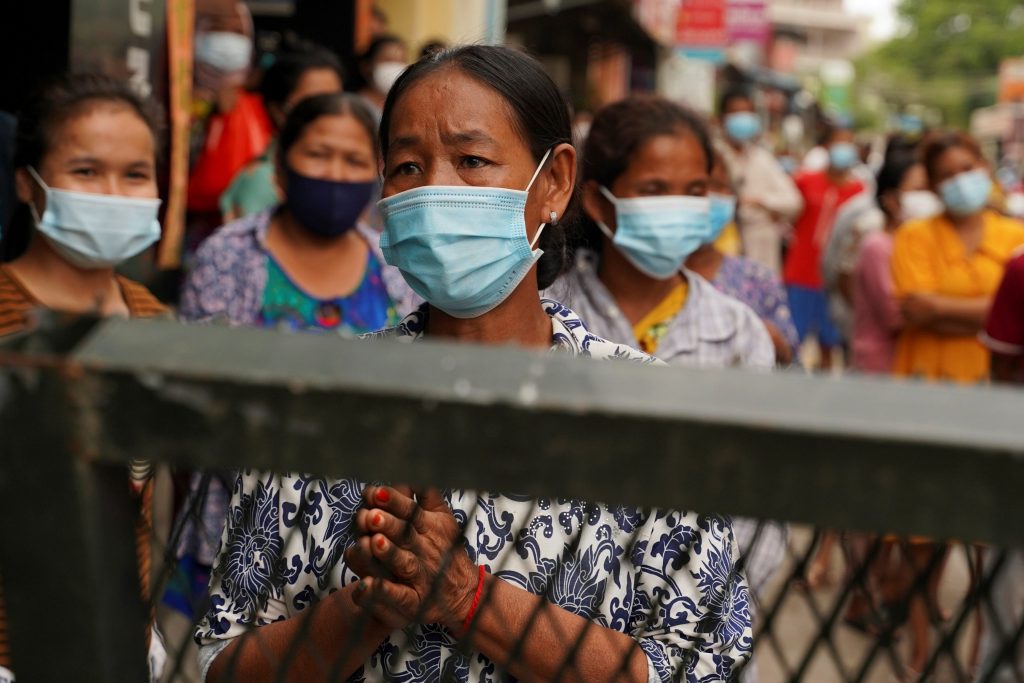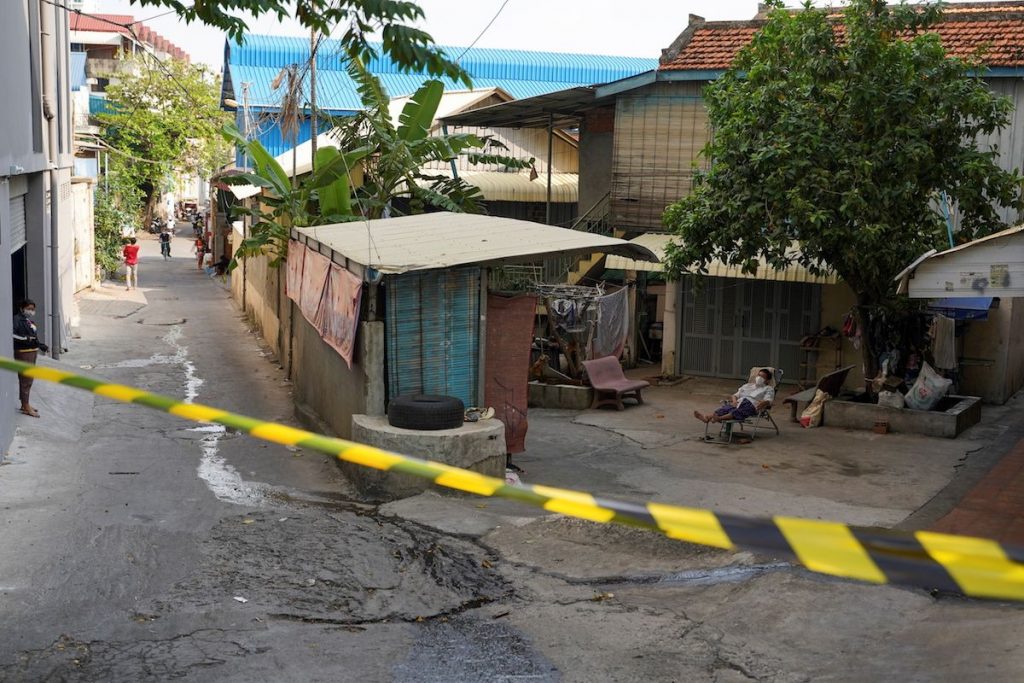
A group of regional legislators sounded the alarm this week over what they described as Cambodia’s “disproportionate and excessive measures” in response to the pandemic.
In a statement, the ASEAN Parliamentarians for Human Rights (APHR) urged Cambodia to provide relief to those in need and to adopt a “comprehensive approach” that places human rights at its center.
The legislators noted that the rise of COVID-19 cases in Cambodia has introduced “a slew of harsh laws, sub-decrees, and other measures.”
The group said strict lockdown measures have severely affected access to basic necessities such as food, and have been enforced with violence by the police.
Dozens of people have reportedly been arrested or have received arrest warrants on incitement charges for criticizing the government’s response to the pandemic.
“While the government has an obligation to prevent the further spread of COVID-19, its measures must be necessary and proportionate to the threats posed by the virus,” said France Castro, a Philippine member of APHR.
“What we are seeing however is a government that is issuing threats and violence and pushing people further into hunger,” said Castro.
The group cited the Law on Measures to Prevent the Spread of COVID-19 and Other Serious, Dangerous and Contagious Diseases that allows authorities to restrict travel, gatherings, demonstrations, and business operations or professional activities.
Under the law, offenders can be sentenced to up to 20 years in prison and fined 20 million riels (US$5,000).
According to human rights group LICADHO, at least 258 people were arrested under the COVID-19 Law between April 10 and 25.
“Twenty years in prison for not respecting a travel ban or for taking part in a demonstration is totally excessive,” said Wong Chen, APHR member and a Malaysian member of parliament.
“The pandemic should not be used as an excuse by the government to impose dictatorial and anti-democratic rules,” he said.

Lockdown measures imposed in areas known as “red zone” in Phnom Penh have reportedly cut off food supplies for tens of thousands who are now in dire need of aid.
These restrictions, which ban residents from leaving their homes unless for medical reasons, initially saw the government commit to providing food and water, but it has since said they will be selling products instead.
“The very same people the government is supposed to protect are now most at risk of severe financial hardship,” said Wong.
The Catholic Vicariate of Phnom Penh has already initiated the distribution of food supplies in areas most affected by the lockdown.
Bishop Olivier Schmitthaeusler of Phnom Penh led the implementation of an emergency support program for vulnerable people in areas in the “red zone.”
Lunch boxes have been distributed to people who are under strict lockdown.
The lunch boxes, which contain two cans of fish and four packs of noodles, will be distributed daily from May 1 to 8, reported Radio Veritas Asia.
The Catholic community in Phnom Penh has already served about 1,000 families since the lockdown while Caritas Cambodia was able to distribute 2,800 food packs from April 14-28.
Cambodia reported a daily record of 730 new coronavirus cases, the health ministry said in a statement on Sunday, May 2, as the country struggles to contain a wave of infections that emerged about two months ago.
The Southeast Asian nation has recorded one of the world’s smallest COVID-19 caseloads, but the recent outbreak that was first detected in late February has caused infections to climb to 14,520, with 103 deaths.
Phnom Penh, which has the most COVID-19 cases in the country, is under lockdown until May 5.
Source: Licas Philippines
0 Comments